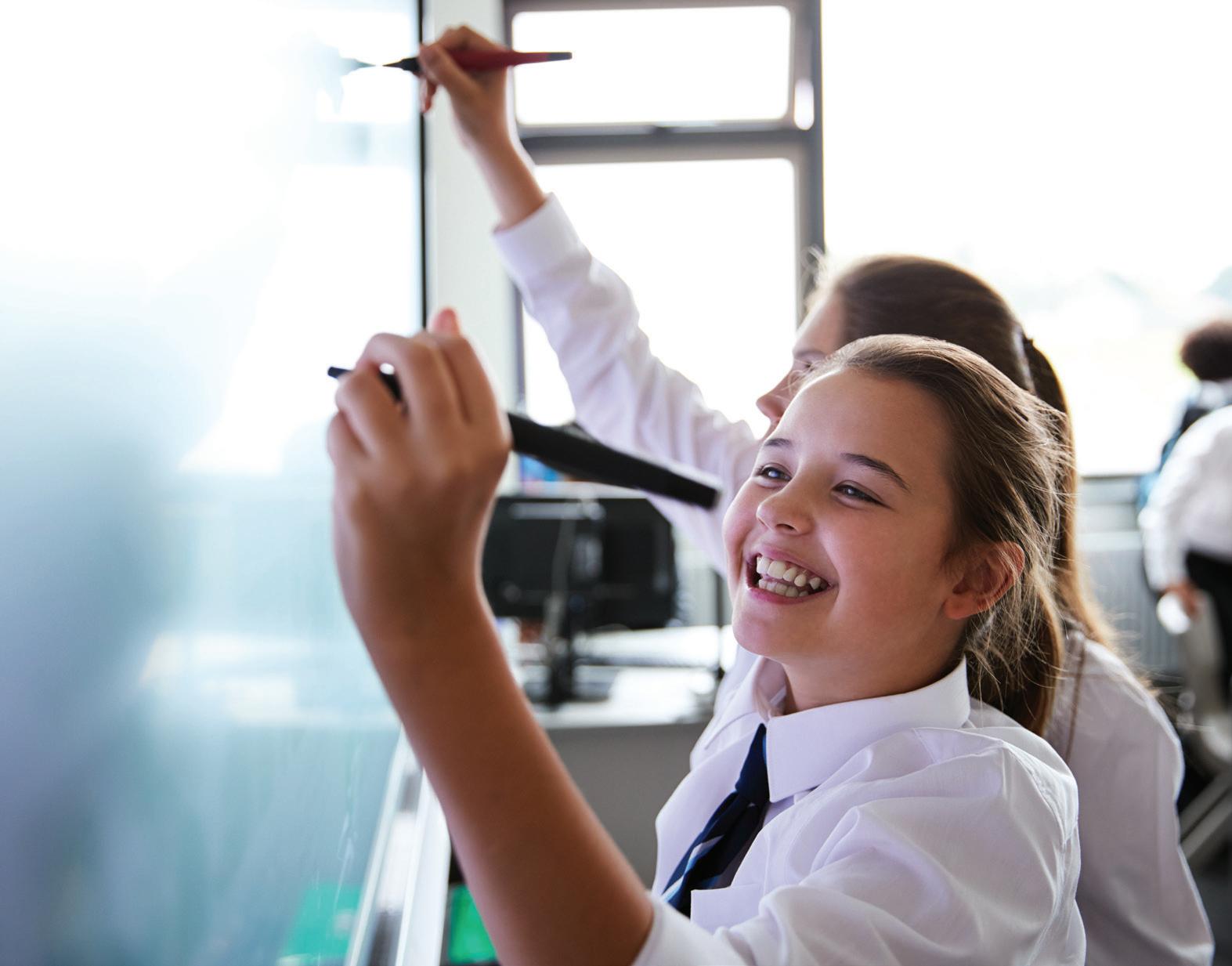Teaching empathy Damian Todres Director of Drama and Head of the Creative Arts Faculty, Wells Cathedral School
Consider the experience of being
capacities that will empower them to
a boarder in the twenty-first
thrive in an unknowable future. And
century – tentatively exploring ‘who
here we come to an old idea. Aristotle’s
I am’ through the glaring lens of
concept of phronesis or ‘practical
relentless social media feeds, with
wisdom’ is an intelligence gathered
the emotional burdens of ‘always
from practical action and creativity that
on’ connectivity, commentary and
ultimately informs a person how to ‘be’
unprecedented self-comparison to
in the world. Concerned with not only
peers. Add to this the worries of
the ‘head’ (what to know) but crucially
climate change, political upheaval
also with the ‘hand’ (how to act) as well
and the arrival of a game-changing
as the ‘heart’ (how to feel), Aristotle
global pandemic. Such psychological
emphasised the significance of not only
pressures are compounded by the
‘what to know’ but also ‘how to know’.
rapid pace of technological change, where more than half of children entering primary school today will end up working in completely new jobs that don’t yet exist. How can our children and young people be better prepared to cope in such a world? Drama may hold the key. An indication of this direction of travel can be seen in a recent World Economic Forum report The Future of Jobs 2020 (https://www. weforum.org/reports/the-future-ofjobs-report-2020). The report notes that employers are prioritising creativity and emotional intelligence. These more ‘human’ skills are seen to balance the trend towards artificial intelligence and machine learning. As a result of the cultural and employment challenges facing our young learners today we may need to re-evaluate the kinds of knowledge and
EMPATHIC THINKING So how do we provide opportunities to facilitate practical wisdom and emotional intelligence in our schools? I believe that teaching and learning drama is a compelling answer. By embodying characters from other times and places, drama uses the universality of human experience to uncover shared emotional and personal connections. Drama can develop perspectives between ‘self’ and ‘other’ through its inherently social and collaborative methods of working, encouraging empathic thinking and behaviour. During the iterative process of creating a piece of drama, creativity and imagination help to provide a transformative space of possibility that supports the development of practical wisdom, kindness, healing and understanding – qualities that transfer readily to the wider life of the pupil.




































